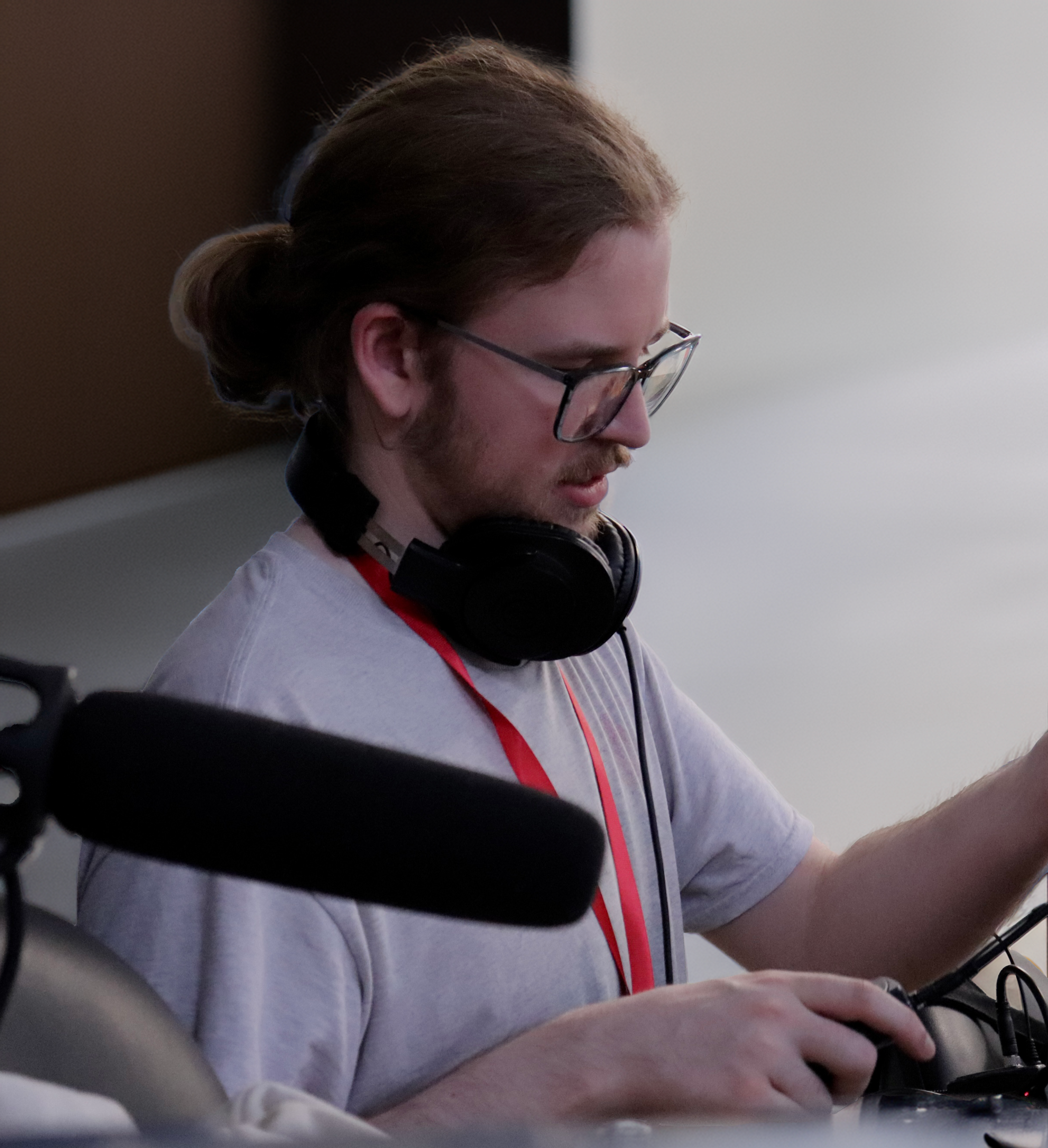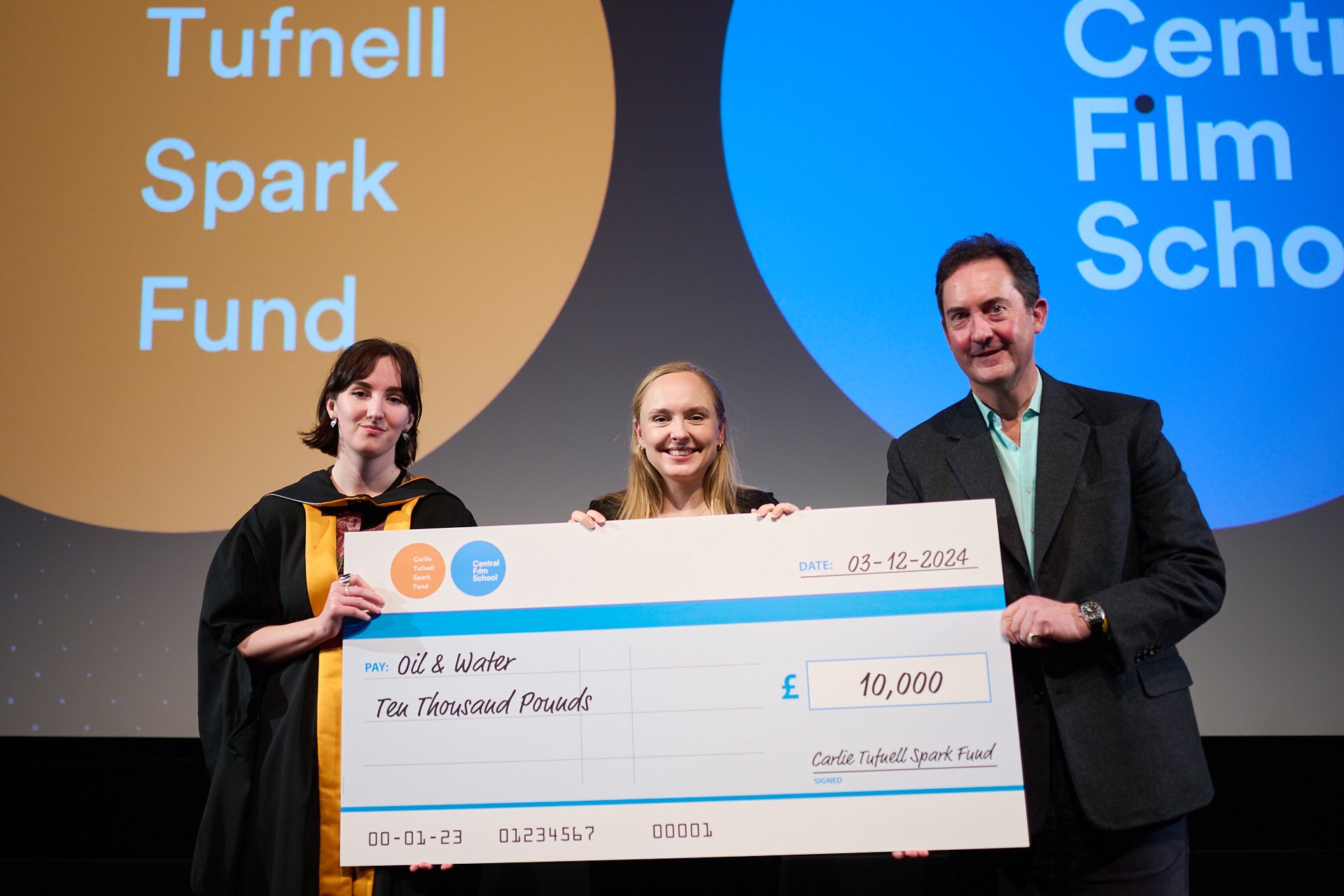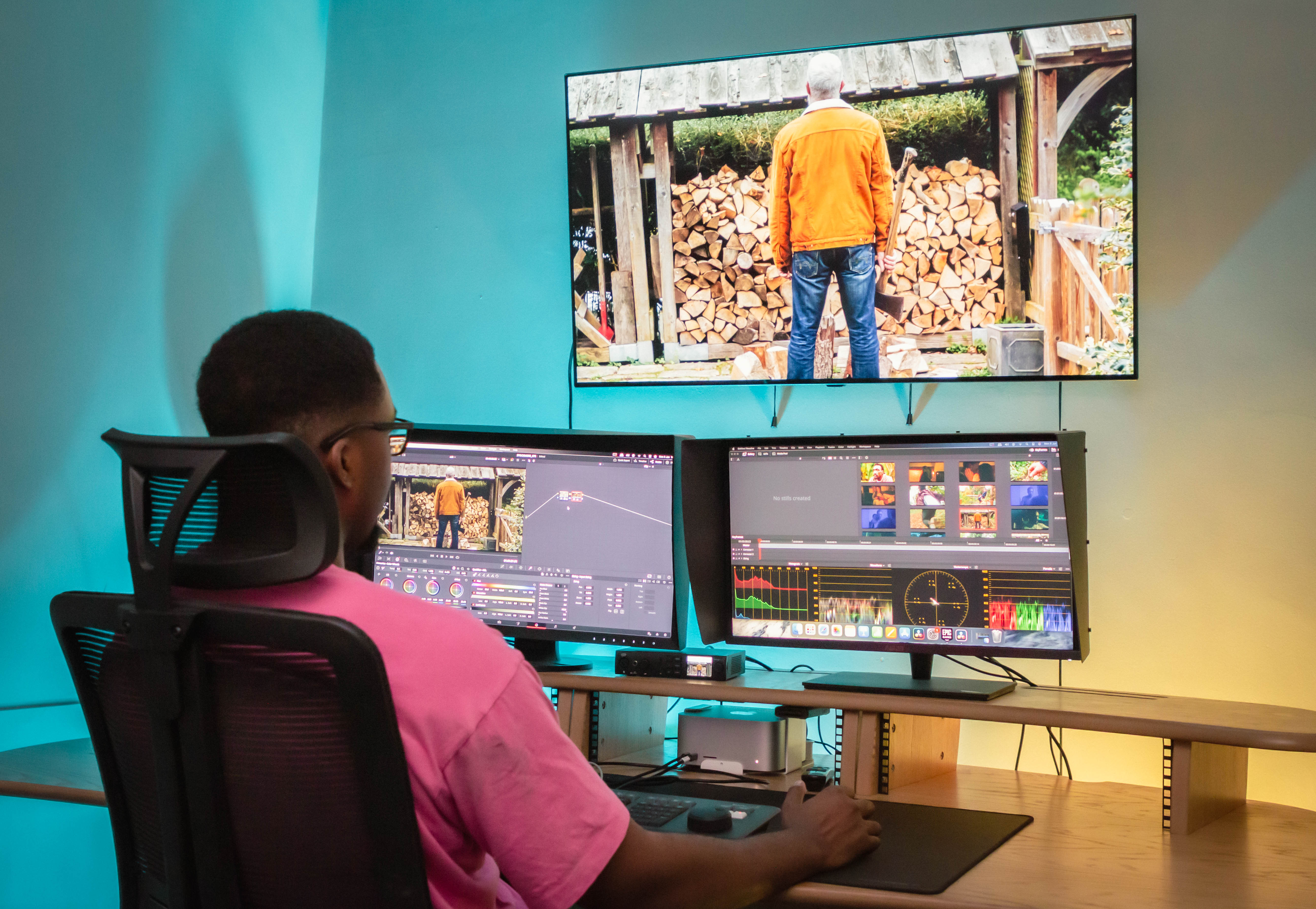Programme Overview
The BA (Hons) Post-Production & VFX programme places you at the forefront of the latest digital technologies, offering a pathway into specialised technical sectors within the screen industries.
-
Hands-on training with DaVinci Resolve, Unreal Engine, and Pro Tools.
-
Master editing, sound, compositing, motion tracking, and effects.
-
Build expertise in 2D effects, motion graphics, colour grading, and audio.
-
Graduate with the versatility to work across film, TV, and digital media.
The two-year BA (Hons) Post-Production & VFX programme immerses you in every stage of the post-production process, from editing and sound design to visual effects and workflow management.
Your studies culminate in a Final Major Project, where you’ll specialise in your chosen area - whether editing, sound design, colour grading, or VFX.
- 112 UCAS points for September 2026 intake.
- Students not from a Majority English Speaking country will need IELTS 6.0 overall (no less than 5.5 in any band) or equivalent.
- All applicants must submit a creative work sample and personal statement with their application. The creative work sample should include a showreel or short film 2-3 minutes in length (uploaded to vimeo/youtube/personal website) – Your name and role must appear in the credits.
- Applicants for this course will be invited to attend a virtual interview.
- If you are an international student and unsure of your eligibility please contact us on courses@centralfilmschool.com.
Understanding the costs and financing options open to you as you plan your studies will help you to make a wise investment in your future career.
| Home | International | |
| Year 1 | £11,130 | £23,950 |
| Year 2 | £11,130 | £23,950 |
Select a heading to view more details.
“Central Film School gave me a chance to explore my passion for sound in film, both production and post-production. With the many projects over my time there, I honed my skills and got valuable experience, helping me secure jobs once I left.”
Euan Hill

Progression
The BA (Hons) Post-Production & VFX degree equips students with a versatile skill-set that is highly valued across film, television, streaming, and digital media. It provides a dedicated pathway for graduates to enter roles such as Production Coordinator (VFX), VFX Editor, Assistant Technical Director, Sound Design Editing Assistant, or VFX Production Assistant, with the chance to specialise further in colour grading, compositing, or animation.
Beyond technical expertise, students develop transferable skills in problem-solving, project management, teamwork, and creative communication, that are relevant across a wide range of creative and digital industries. The emphasis on collaborative workflows and professional practice also provides graduates with the adaptability and resilience to succeed in freelance and studio-based environments.
Alumni Stories
Hear the motivating journeys of previous alumni, and how Central Film School has given them the necessary skills to step into the screen industries with confidence.

Have a question?
If you’d like to know more about our courses, or have any other questions, please fill in the form and a member of our Student Recruitment & Admissions Team will get back to you shortly.


